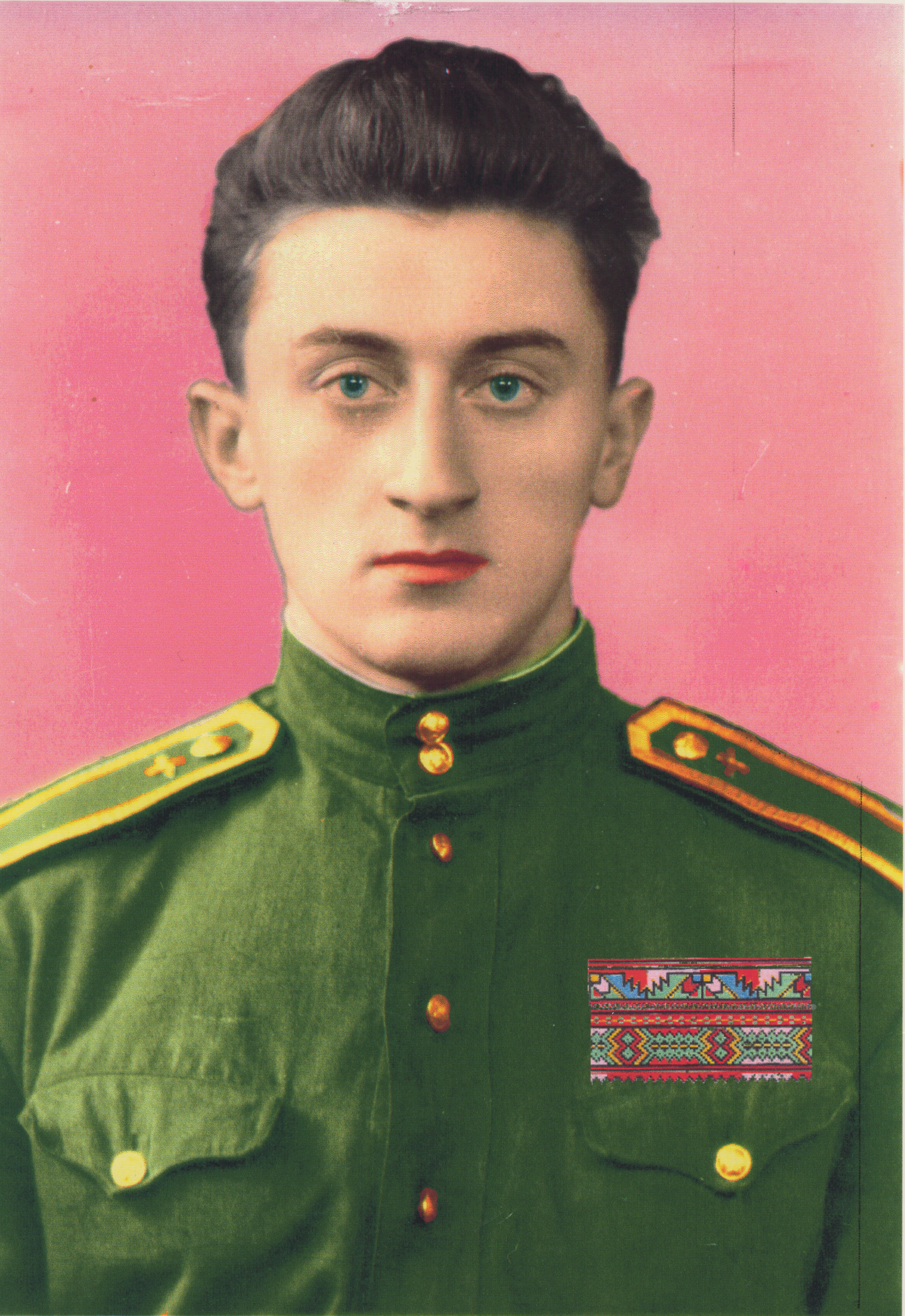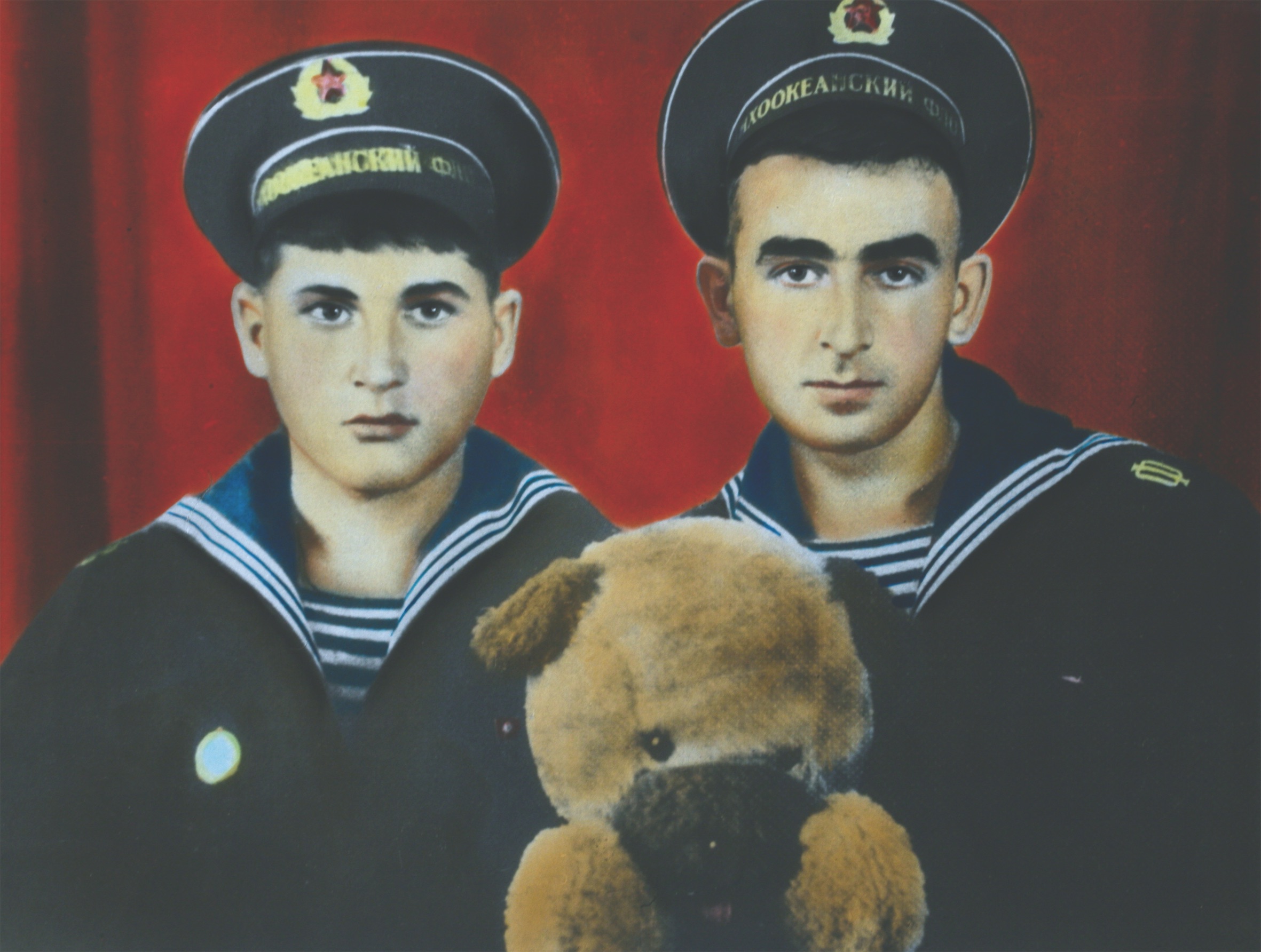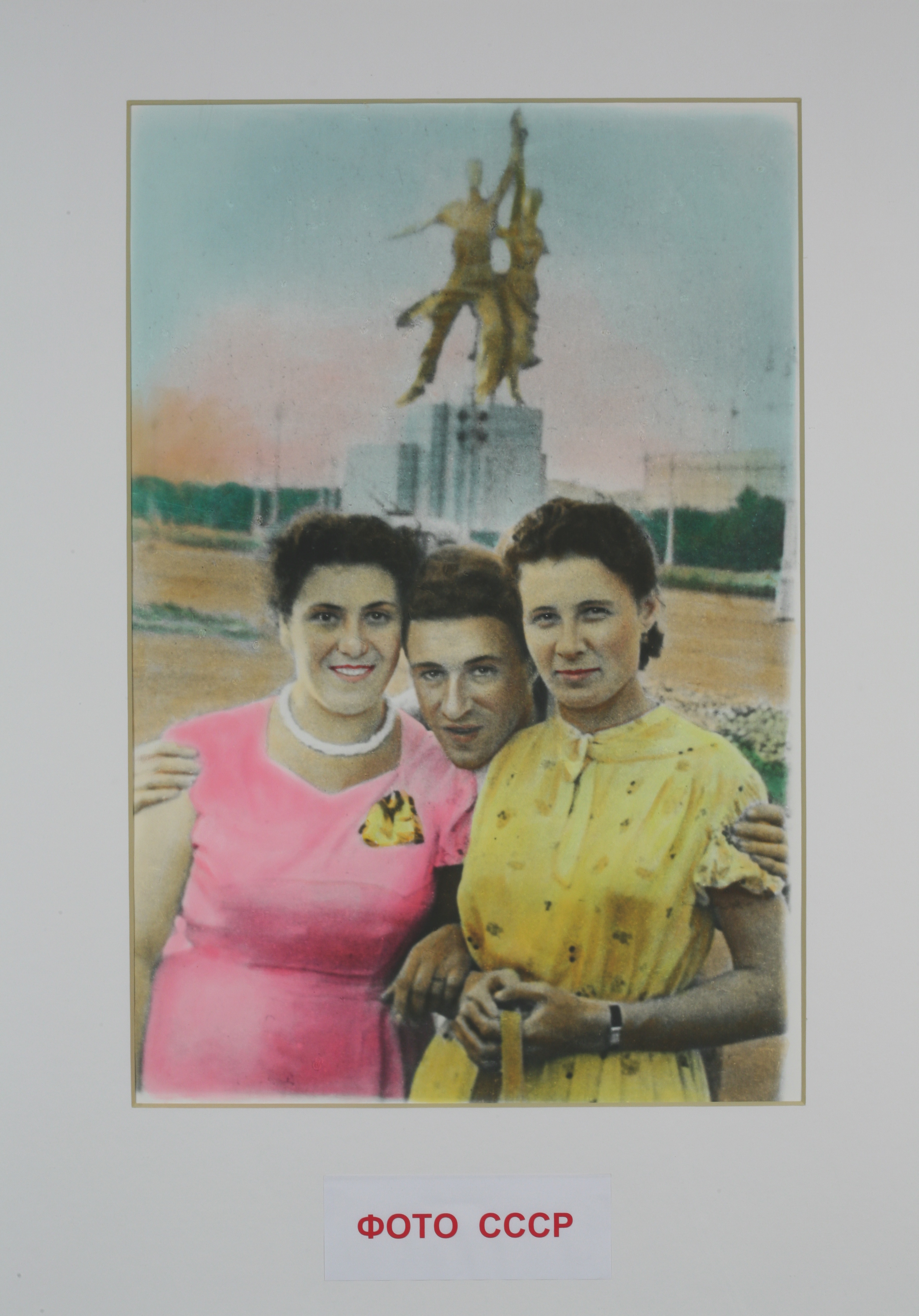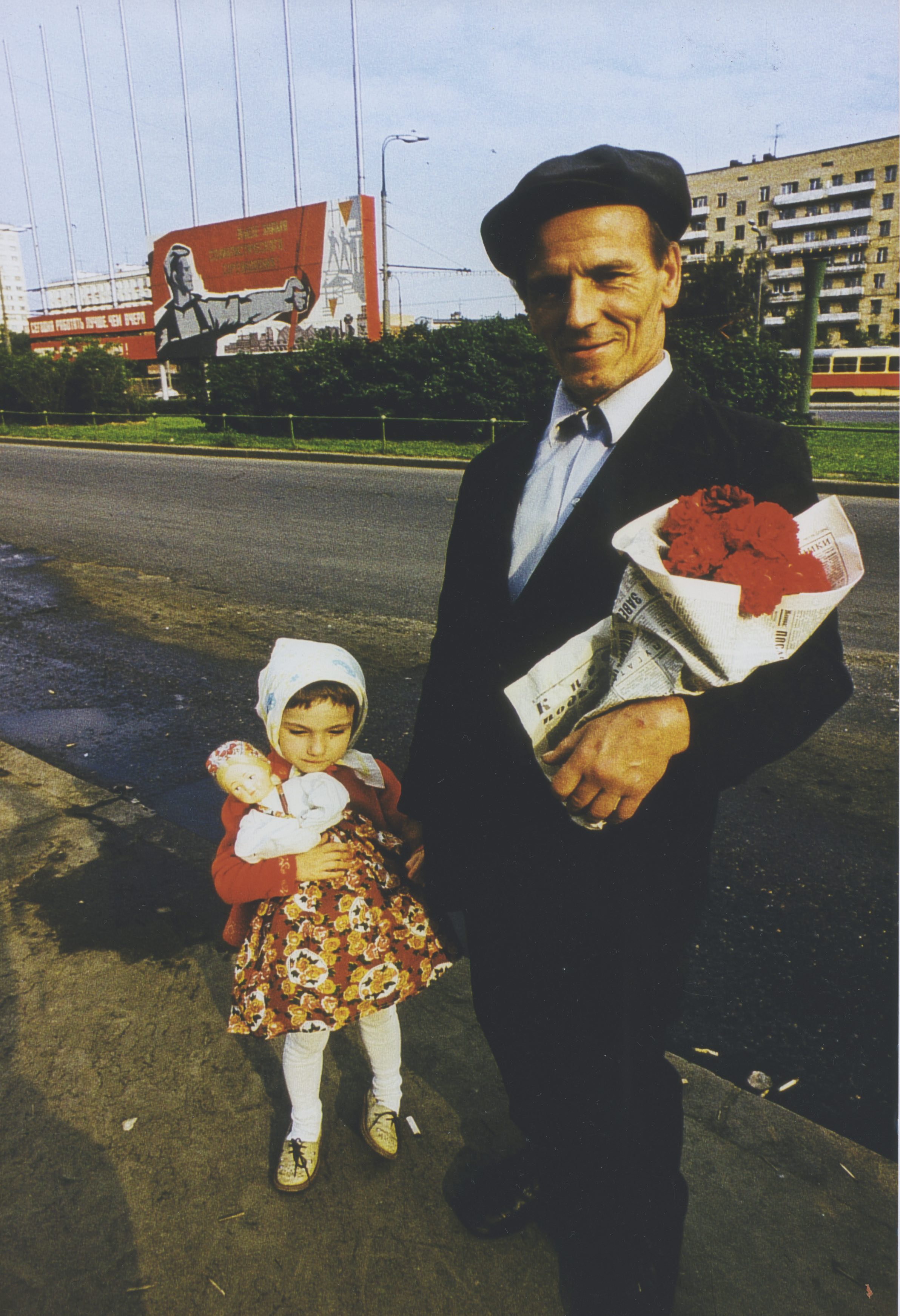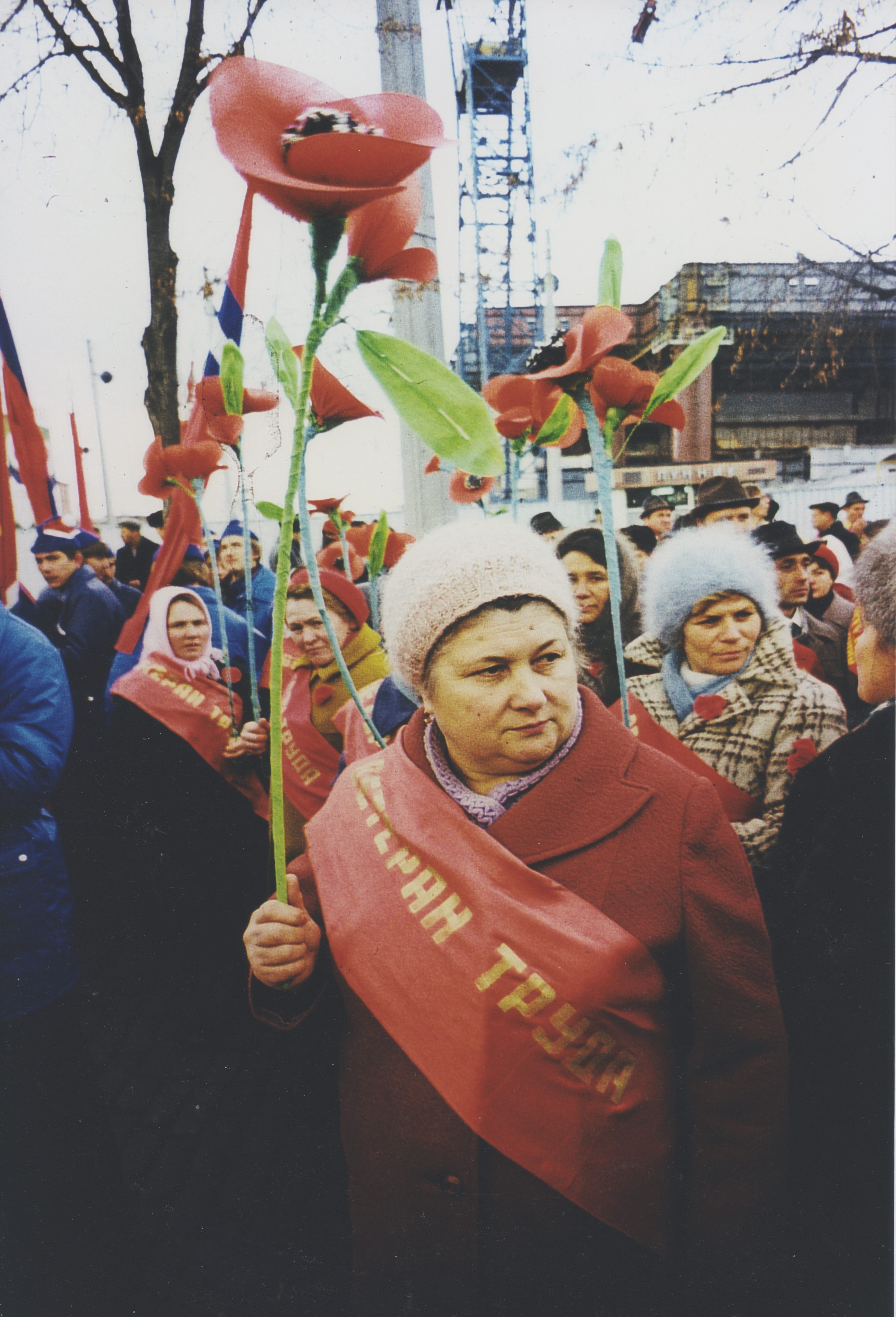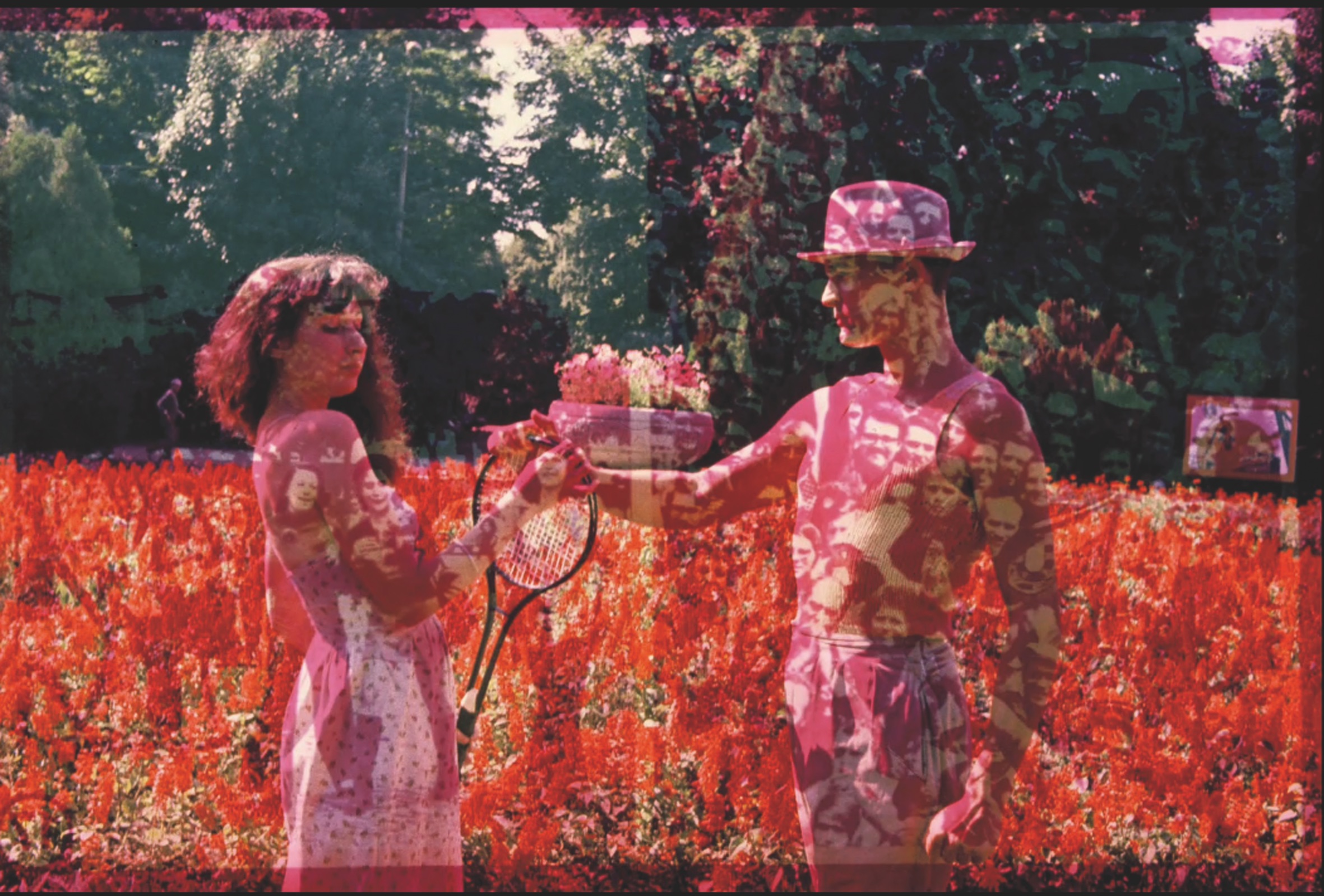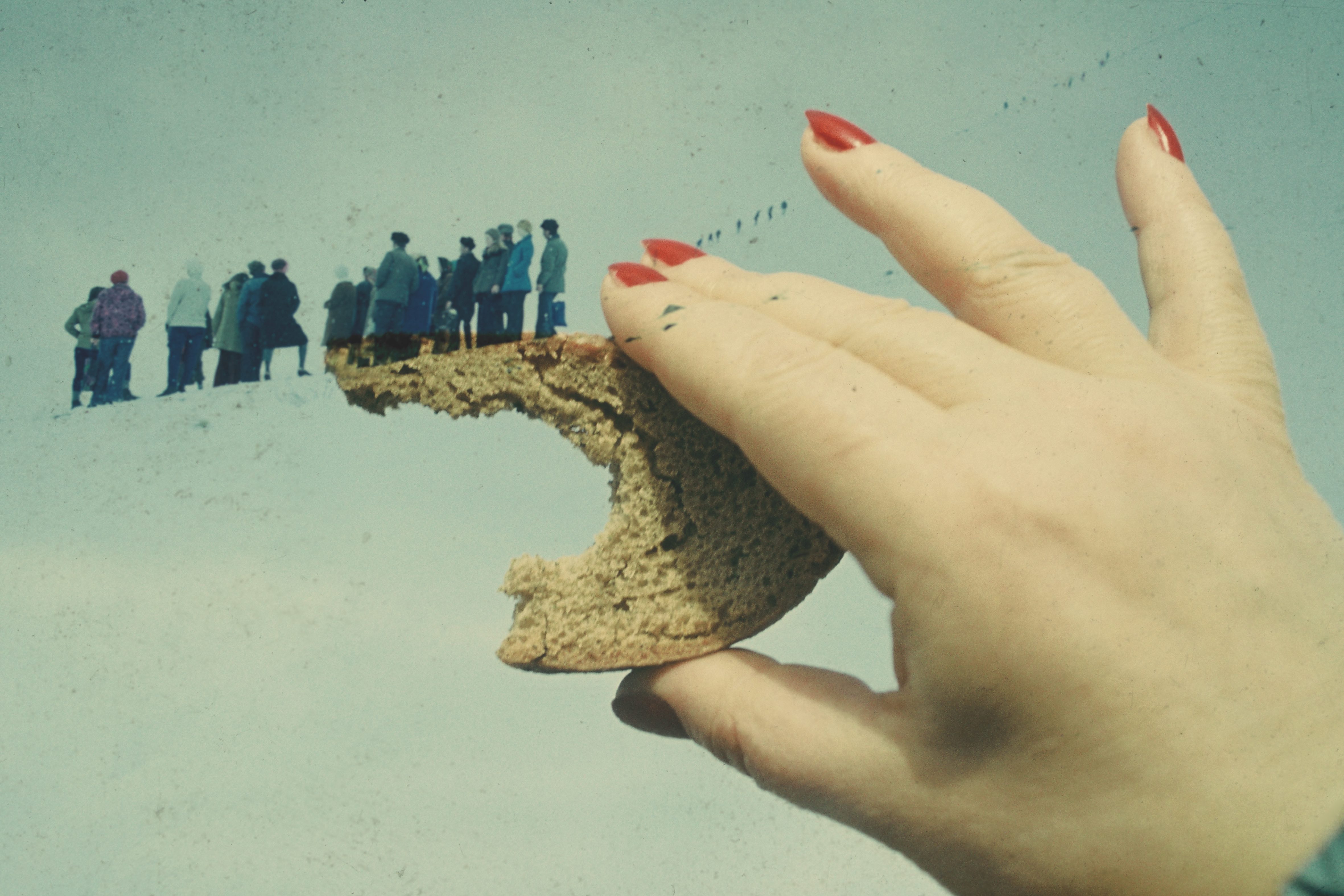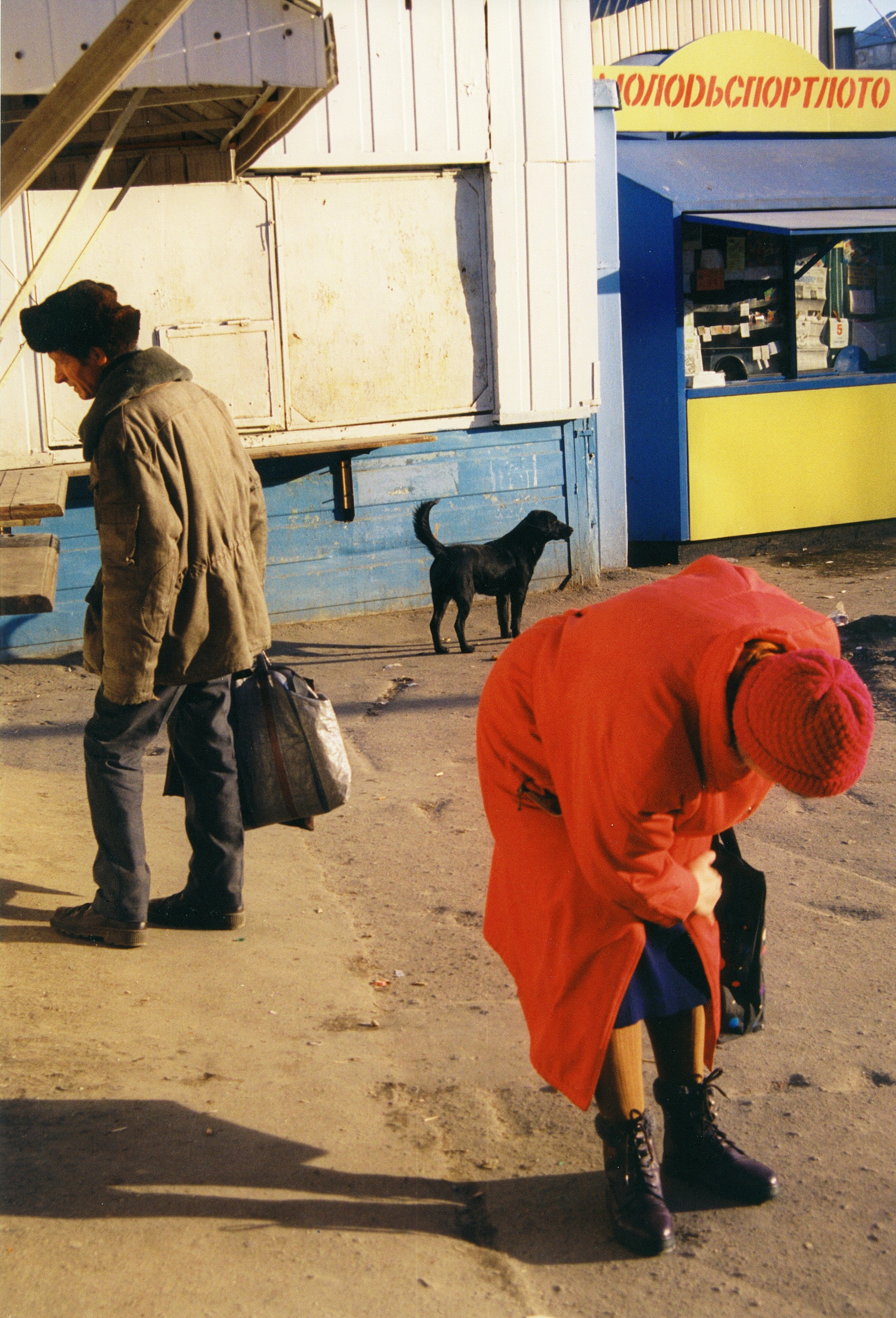Personal artistic style
Boris Mikhailov trained as an engineer and taught himself photography. In the mid-1960s he was given a camera to make a short film about the state-owned factory where he worked. In his spare time, he started taking nude photos and experimenting with printing in the darkroom. When the KGB raided his house and discovered the nude photos, he was immediately fired from his job. Mikhailov decided to take up photography professionally, earning money by making hand-coloured portraits, which were fashionable at the time. He then began to colour found black-and-white photographs, conceptualising the colouring technique, often using kitschy colours to make them ‘more beautiful’, indirectly mocking the way Soviet propaganda glorified everyday events. Mikhailov assembled these first photographs in the series Luriki (Rays of Sunshine), which he saw as a Soviet family album. This working method proved to be exemplary of Mikhailov’s free use of the medium of photography. From the start, he developed his own artistic language that varied in technique, format and approach in order to document the everyday reality in his country – within the margins of censorship.
Documentary and conceptual
Mikhailov is unmatched in his ability to fuse documentary and conceptual art. Red, a series of seventy-one photographs taken from the late 1960s to the late 1970s, is a good example of this. All the photos feature the colour red, a powerful symbol of the communist ideology with which Mikhailov grew up. In Yesterday's Sandwich (late 1960s-70s) he also created a conceptual layer with photos from his private life and street scenes. The series of slides had an interesting genesis: when Mikhailov accidentally threw some of the slides on his bed, two images stuck together, creating a fascinating double image. He then made more combinations and set the slideshow to Pink Floyd's The Dark Side of the Moon (1973), an album that for him refers to paradise lost.
Collapse of the Soviet Union
In his work from the 1980s, Mikhailov seemed to be cautiously anticipating the impending fall of the Soviet Union. His photographs of athletic youth and marching dignitaries from the series Sots Arts (1975-85) received the approval of the socialist state. Mikhailov then undermined the meaning of these images by adding garish colours, thus expressing his frustration and disillusionment with Soviet ideals. In later series such as I Am Not I (1992) and National Hero (1992), Mikhailov commented on the emergence of capitalism in Ukraine. Case History (1997-98) and Tea, Coffee, Cappuccino (2000-10) mercilessly document the consequences of Western influences that were supposed to bring prosperity but actually led to the emergence of a new elite of millionaires while a significant portion of the population fell into poverty and the number of homeless people increased dramatically.
Exhibition
The exhibition features work from nineteen series made between the 1960s and 2019, including two video installations, monumental works and hand-coloured photos. It also includes works in which Mikhailov combines photography with text and his experiments with a cinematic montage of still images. A complete overview of the series displayed can be found on our press page.
The exhibition was curated by the Maison Européenne de la Photographie in Paris in close consultation with Boris and Vita Mikhailov. After its showing in Paris, it travelled to the Palazzo delle Esposizioni in Rome. After being shown at the Fotomuseum Den Haag it will travel to the Royal Danish Library in Copenhagen.
Publication
The exhibition is accompanied by a 576-page catalogue, From “Blue Horse” till Now Days 1965-2022, which brings together twenty-seven of Mikhailov’s series. It is co-published by the Maison Européenne de la Photographie in Paris and Mörel Books in London and is available in the museum shop.
About Boris Mikhailov
Boris Mikhailov is one of the most important figures in the international art world and has received many international awards, including the Goslar Kaiserring Award in 2015, the Hasselblad Award in 2000 and the Citibank Private Bank Photography Prize (now the Deutsche Börse Photography Foundation Award) in 2001. He has represented Ukraine twice at the Venice Biennale, in 2007 and in 2017. His work has been exhibited in major museums around the world, including Tate Modern in London, the Museum of Modern Art in New York and C/O Berlin. In 2021, his project Temptation of Death (2017-19) was awarded the Shevchenko National Prize, the first official recognition of Mikhailov's work in Ukraine. He currently lives in Berlin with his wife Vita.
The exhibition is organized in collaboration with the Maison Européenne de la Photographie Paris. Curator: Laurie Hurwitz in collaboration with Boris and Vita Mikhailov.

The exhibition and programme is supported by:

